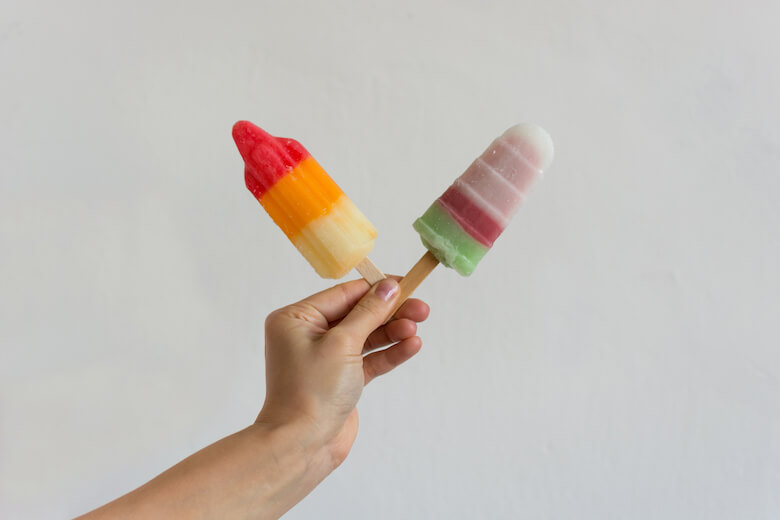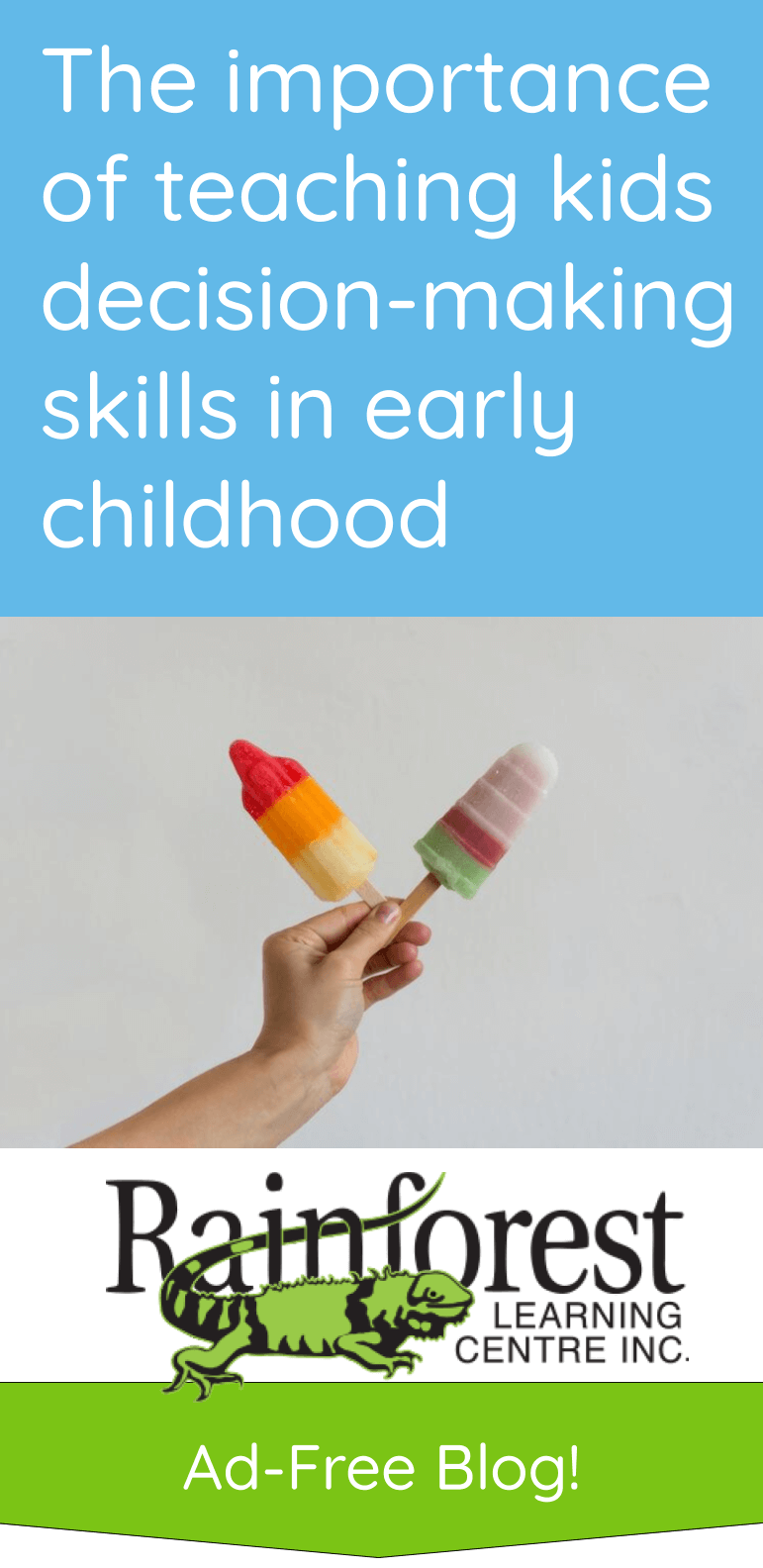
Good (or bad) decision-making affects us all. So, without a doubt, teaching kids good decision-making skills in early childhood is a wise practice. Truth be told, many children make decisions based on emotions, or the spur of the moment. It’s a life skill to learn how to make thoughtful choices. It needs to be practiced and taught.
But how early do we start teaching children about making decisions? Are they too young to understand? Aren’t we trying to protect them by making their daily-life decisions for them?
In some things, the answers to the above are, “yes.” But in other things, not really. Teaching kids how to make their own, independent decisions can start fairly early, even at the toddler stage. Below we’ll explain more on this topic.
‘Small choice’ decision making in early childhood teaches kids to think ahead, for the ‘big choices’ in life
The best way to learn a new skill, as they say, is to practice it. If you want to be good at piano, theory is not enough; you need to actually play the piano. Make some mistakes, solve a few problems, then try again and again until you ‘get it.’
The same goes for decision-making skills; they have to be practiced, if you want to get good at them.
As this Psychology Today article explains, when asking kids if they’ve ever done something stupid, they usually say yes. But the question is, why? And they say things that probably sound all too familiar to us; they ‘weren’t thinking,’ or they were peer pressured, or it felt good at the time, and so on.
Generally, this comes down to thinking ahead. If we don’t stop to contemplate before making decisions, we are more likely to make bad decisions. This is because we’ll base our decisions on instant gratification, instead of long-term gain – and the two don’t always place nice together.
Thankfully, however, in early childhood, bad decisions are not often life altering, especially if guidance is given. But they can help to show children that they do have a choice. Kids can pick between apple juice or orange juice. Or they can pick green pyjamas or red pyjamas. They can decide on a book to read before bed. They can have some control in their life (which is healthy for their personality development).
Once young children know they have a choice in some small matters, they can move on to the next incremental step: learning how to weigh the consequences of their decisions, before making them. That brings us to our next point…
Decision making skills teach preschoolers that actions have consequences, and we have to live with them
Let’s think about the small decision a preschooler could make between apple juice or orange juice. Clearly, it’s inconsequential. But if your little one then receives their apple juice and realizes they actually wanted orange juice, that becomes a teachable moment.
At this point, it’s good to let your child live with the so-called, ‘consequences’ of having picked their apple juice (which of course, are not really life-altering at this stage in life). Yes, they may whine and cry, or give you that sad, adorable, heart-melting look (you know, the one that makes you want to give them anything they want because they are so darn cute and you love them to the moon and back).
When children learn that they have to live with their choices, they also learn that actions have consequences. Their word means something. And, not all decisions are reversible, so we need to learn to think ahead, as mentioned above.
You may think that the crying and whining about wanting orange juice over apple juice is not worth your time or patience. We’ll leave that to you to judge. Certainly as parents, we have those ‘moments’ where we need to ‘pick our battles wisely,’ or we’ll go ‘crazy’ ourselves! And that the battles we pick as adults are choices in themselves. But remember; as parents, our choices also have consequences! At some point, a child will need to learn this lesson. Decisions with tiny consequences are probably easier ‘pills to swallow’ for the ‘practice runs,’ than the bigger issues that come up in life, as kids grow older and older (and eventually become adults).
One day soon, your kid might decide to join swimming, or karate, or piano. At that point, things will get tough – because all those things are hard to learn (or even to try at!). And, sticking to them, or not sticking to them, can have consequences. But, teaching the essential life-skills of resilience, patience, goal achievement, responsibility and follow-through all come down to sticking to our decisions – so it’s best we learn how to think-ahead before making them!
And yes – we know there is also the skill of knowing when to quit. But that’s for another article.
Good decision making skills taught in early childhood have a life-long impact on communities
Studies have shown that the more we invest in early childhood education, the better outcomes can be for our future generations. One such study took that a step further, by examining how decisions affect communities, thanks to early childhood education. They found that adults were better able to make decisions fairly, in the interests of a group, and with long-term views in mind.
You can see more about this study here.
Common sense can also tell us that when children learn to make good decisions at a young age, they can be better planners for our future. Having such thoughtful individuals who think in terms of the benefits of the whole, surely, can have a lasting impact on our societies.
Why is it important to teach kids decision making skills in early childhood education? It makes for better adults, living better lives!
While we wouldn’t want to overwhelm children with more choices than they can handle, or with decisions that they can’t possibly come up with on their own, we can give them age-appropriate options. This can give them the practice they need to learn how to make well-thought-out decisions. Eventually, their decision-making skills will get better and better. As they grow older, they’ll be able to evaluate options more thoroughly, and think-ahead, understanding that all their decisions, become actions, which have consequences.
See related on our blog:
- How to teach toddlers and preschoolers to be responsible in an age-appropriate way
- 3 ways to build self-awareness in early childhood
- 3 ways to build confidence in young children
- How to teach impulse control in early childhood
- 8 Ideas to teach preschoolers about money management and why it’s important
- Free parenting classes and learning resources for Vancouver-area residents
